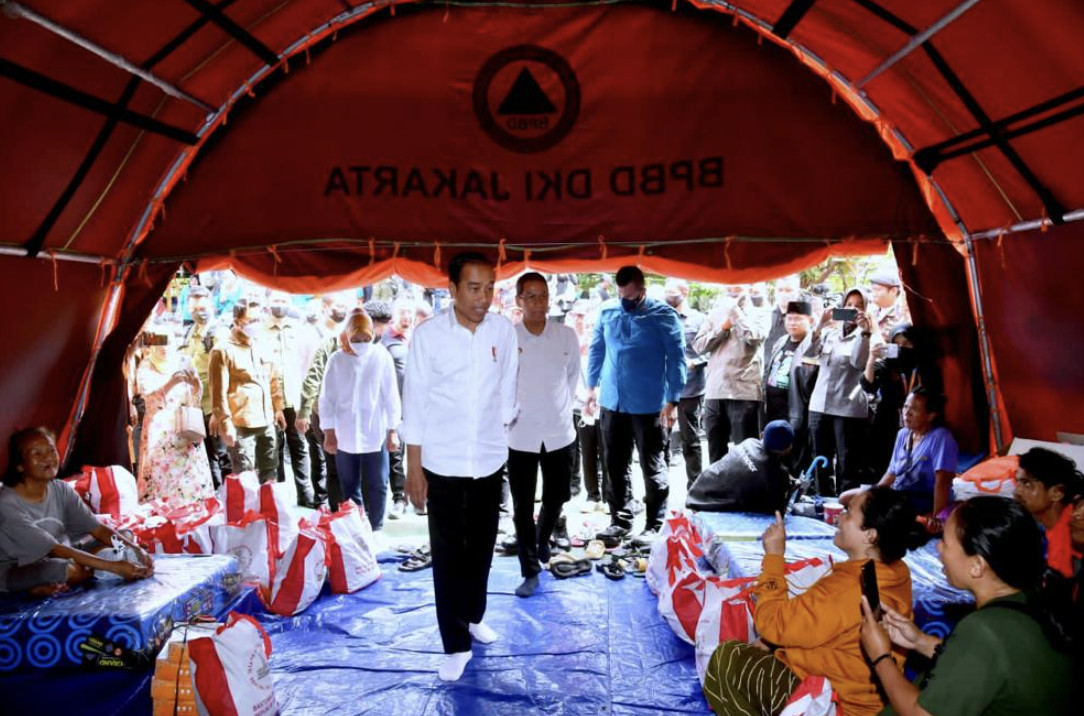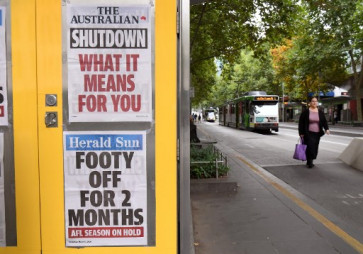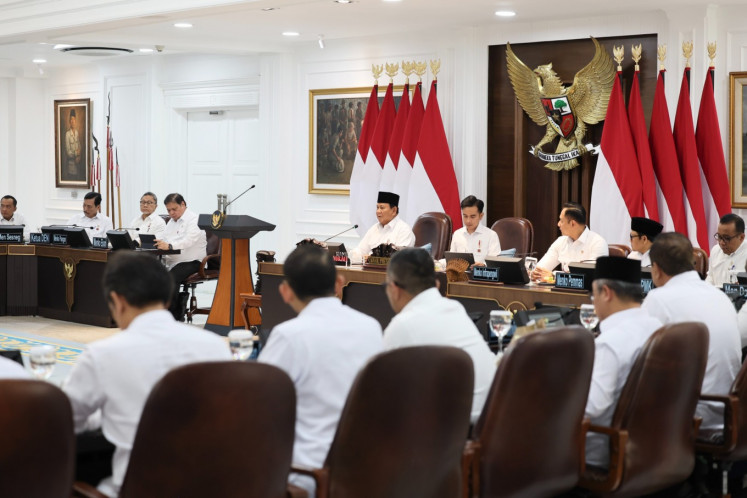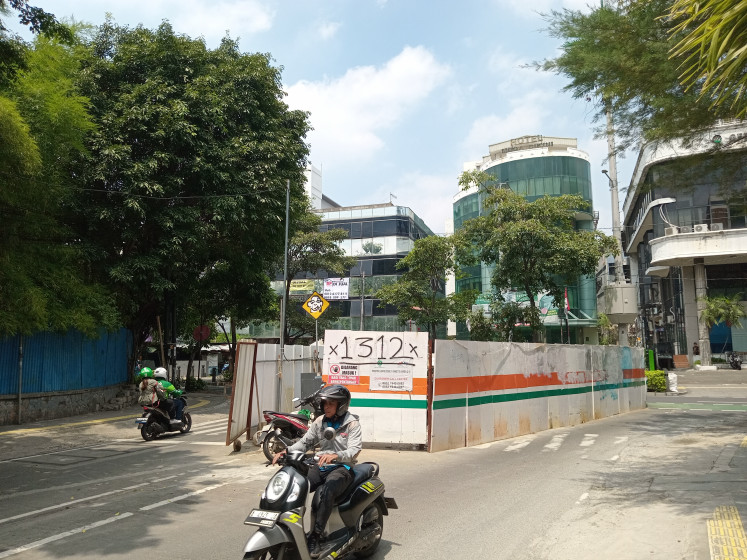Popular Reads
Top Results
Can't find what you're looking for?
View all search resultsPopular Reads
Top Results
Can't find what you're looking for?
View all search resultsMandatory insurance program is urgently needed in Indonesia
Several regions in Indonesia have developed initiatives to protect the people’s loss, such as farmers from potential losses due to crop failure.
Change text size
Gift Premium Articles
to Anyone
D
uring the first quarter of 2023, The Jakarta Post and other media reported on several disasters, such as the floods that inundated residential areas and agricultural land in Kudus regency, Central Java, which damaged their crops, landslides on Serasan Island, Natuna regency, and the Pertamina depot fire in Plumpang, North Jakarta, which caused many casualties and burned dozens of residents' houses.
And still vivid in our memories was the tragedy of Kanjuruhan Stadium, Malang, which occurred after the Arema FC vs Persebaya Surabaya match on Oct. 1, 2022. This tragedy caused 754 victims and 135 deaths. In addition to severe damage to the stadium’s facilities, 13 cars were also reported to have been damaged by the mass burning, the Post reported.
When viewed from the point of view of protecting the public against potential losses, the four different incidents that occurred in the different provinces actually lead to the same conclusion, namely the urgency of developing a mandatory insurance program in Indonesia.
Although Indonesia currently already has several mandatory insurance programs, their scope is still very limited. One of the mandatory insurance programs that probably almost everyone takes part in is the Road Traffic Accident Mandatory Fund Contribution (SWDKLLJ), which is a type of third-party liability (TPL) insurance or protection insurance for legal obligations to third parties that will be given to traffic accident victims. This insurance is paid for by motorized vehicle owners at the time of registration and renewal of the Vehicle Number Certificate (STNK).
In addition to the SWDKLLJ, which is regulated by the Finance Minister’s Regulation No. 36/2008, we are also familiar with airplane accident insurance, where the premium is purchased together with the purchase of a plane ticket. This insurance is regulated through Government Regulation No. 33/1964. In addition to the two examples above, there is a National Health Insurance program and Work Accident Insurance, which are also mandatory insurance programs regulated by Law No. 40 of 2004.
If we look at examples of mandatory insurance programs in several other countries, there is still room for Indonesia to develop or expand the scope of this program. South Korea, for example, has more than 40 compulsory insurance products regulated by the government, including, but not limited to motor vehicle insurance, insurance for gas accidents, natural disaster insurance, insurance due to oil pollution, compensation insurance related to environmental disasters, sports safety insurance, sports facility insurance, elevator accident insurance, fire protection insurance, and so on.
Meanwhile, in Malaysia, there are at least 10 compulsory insurance products which include motor vehicle insurance (TPL), insurance for medical malpractices, travel insurance, fire insurance for residential buildings and apartments, and so on. Other countries such as Taiwan have mandatory insurance programs such as third-party liability insurance for kindergartens and schools, third-party liability insurance for entertainment venues and malls, insurance for factories and storage of dangerous goods, and aircraft insurance including for passengers and their luggage.
Even though it has not yet been included in the mandatory insurance program, several regions in Indonesia have developed initiatives to protect the people’s loss, such as farmers from potential losses due to crop failure. The Agriculture Ministry is pushing for the Rice Farming Business Insurance Program (AUTP), which currently claims to have protected 997,960 hectares of the target of 14 million ha of rice fields. Through this program, the Central Java government has registered farmers with the AUTP in 29 regencies in Central Java. In Central Java itself, during April-December 2022, PT Jasindo has paid compensation claims equivalent to 520 ha, or more than Rp 3 billion (US$2 million).
Based on the 2022 World Risk Report (WRI), Indonesia ranked in the world’s top three for the most disaster-prone countries after the Philippines and India. Therefore, it is necessary to encourage the emergence of other initiatives to protect the public from risks that may arise.
For example, for densely populated urban areas where there is a risk of fire, such as in Greater Jakarta (Jabodetabek), the government, including the local government, needs to encourage a fire insurance program for residences. Important and risky facilities such as fuel depots or terminals need to be protected with insurance that protects potential losses that may befall the community and the houses around the depot.
Meanwhile, for activities such as soccer matches and musical concerts, for example, protection for players, spectators, officials, and the protection of buildings and their facilities need to be a prerequisite for permits. Payment of self-protection insurance premiums for spectators can be combined with ticket costs so that all spectators can be protected.
Law No. 4/2023 concerning the Development and Strengthening of the Financial Sector (UU P2SK) stipulates that the government can establish a mandatory insurance program according to needs, while further provisions regarding the implementation of the mandatory insurance program will still be issued.
The P2SK Law also stipulates that the mandatory insurance program among others includes third-party liability insurance related to traffic accidents, fire insurance and residential home insurance against disaster risk. The explanation in the P2SK Law provides the potential for expanding the existing compulsory insurance in Indonesia so that risks that may occur as a result of fires and natural disasters can be transferred to insurance companies.
The word "among others" in the explanation of the law means that the mandatory insurance program can be expanded and is not only limited to the three things above. It would be even better if government regulation could accommodate other programs such as pre-existing mandatory insurance and expand with other programs such as farmers' insurance for protection against crop failure, insurance for sports activities and facilities as has been practiced in other countries, insurance for large-scale events, third party liability insurance for hazardous facilities and other programs as needed.
***
The writer is an executive analyst at the Financial Services Authority (OJK). The views expressed are his own.










